The bacteria Klebsiella pneumoniae is a bad actor known for being antibiotic-resistant and causing a variety of serious infections in hospitals, including pneumonia, surgical site wounds, and meningitis. K. pneumoniae is something you do not want to encounter if you have a compromised immune system.
But a new study published in the journal mBio revealed that a strain of K. pneumoniae thought to be rare is not so rare after all — it showed up in one-third of the patient samples studied in the largest survey to date on the bacteria. Not good news.
Antibacterial-resistant infections are a growing threat. In 2014, the Review on Antimicrobial Resistance found that unless action is taken now, the number of people dying from resistant infections could reach 10 million by 2050. Many of these infections happen at hospitals, where critically ill people with lowered immunity can pick up these potentially lethal — and untreatable — infections.
Because of the growing problem of this and other dangerous healthcare-associated infections, researchers at the Houston Methodist Research Institute wanted to investigate the family of K. pneumoniae that infect humans. Within one bacteria family, there are many strains, and in this study, researchers used genetic sequencing to identify 1,777 K. pneumoniae strains. The strains were collected and cultured from patients in the Houston Methodist Hospital system between September 2011 and May 2015.

While researchers were expecting to find high representation from a well-known and much-studied strain known as clonal group (CG) 258, they also discovered more about a purportedly rare strain, called CG307. CG258 has a reputation for causing healthcare outbreaks around the world, but CG307? Not so much.
"Finding the otherwise uncommon strain in our city was a very surprising discovery," study author James M. Musser, of the Houston Methodist Research Institute and Houston Methodist Hospital, said in a press release. "Because Klebsiella pneumoniae is a common and important cause of human infections, we urgently need to identify potential vaccine targets or other new treatments, and develop new and rapid diagnostic techniques."
What Is Different About CG307?
Highly sociable, bacteria can transfer their genetic material between themselves, even if they're of a different strain. Bacteria in close contact with each other pass off genetic material through pieces of DNA that can replicate independently of the main genetic material of the bacteria, called plasmids.
Some of the gene material switched off between bacteria includes genes that confer resistance to antibiotics. K. pneumoniae strains that receive these plasmid bits often become antibiotic-resistant and produce an enzyme called carbapenemase. That means the K. pneumoniae strain on the receiving end is now likely resistant to types of antibiotics called carbapenems.
And you can see where this is going — carbapenems are some of the last antibiotics that still work against multidrug resistant K. pneumoniae infections. The prevalence of the K. pneumoniae strain CG307 was both a surprise and a concern because as the researchers studied their data, they realized the strain caused more infections than the more commonly feared strain, CG258.
Here are some findings from the study:
- First identified in a Dutch teaching hospital in 2008, CG307 has since been sporadically identified in Europe, Asia, Central and South America, Africa, the Middle East, and New York City.
- In some cases, different strains of K. pneumoniae were sampled from the same patients over spans of time as long as three years.
- The K. pneumoniae strain CG307 caused chronic infection as often as the strain CG258.
Using a large hospital system to sequence K. pneumoniae strains gave researchers an excellent opportunity to catalog genomic diversity in a family of bacteria that is rapidly becoming more dangerous. The process used here could be used against other bacteria families to identify potentially dangerous mutations that could quickly prove dangerous.
The Houston Methodist Hospital system serves a local, highly diverse population of approximately six million people as well as drawing patients from around the country and the globe for treatment. The system proves a potent mixing pot for plasmids of antibacterial resistance. The study does not represent an indictment of the hospital system, but instead, a reminder that in addition to reservoirs of superbugs, large, institutional hospital networks provide an opportunity to study antibiotic-resistant pathogens that naturally occur in these settings.
By studying the structure and occurrence of CG307 and other strains, the study adds to and improves knowledge needed to develop strategies and options for successfully meeting the challenge of antibacterial resistance.
One last question — why Houston? Why has a strain previously considered "rare" turned out to be a real concern for this geographic region? The answer at present is still unknown. As the authors note, "the reason(s) the CG307 clone has become abundant in Houston but not other parts of North America is not understood."
Additionally, while highlighting recent reports of CG307 infections in Italy and Korea, researchers observe the Houston infections "appear to be as virulent as CG258 strains," and they add, "Our results may portend the emergence of an especially successful clonal group of antibiotic-resistant K. pneumoniae."
Just updated your iPhone? You'll find new emoji, enhanced security, podcast transcripts, Apple Cash virtual numbers, and other useful features. There are even new additions hidden within Safari. Find out what's new and changed on your iPhone with the iOS 17.4 update.









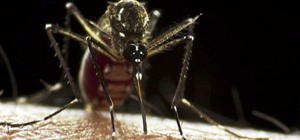
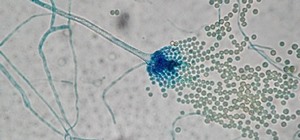









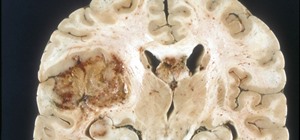
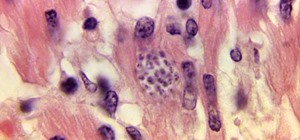

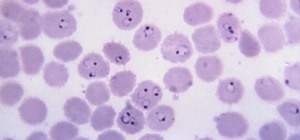
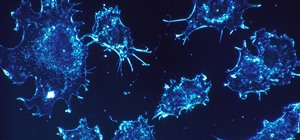

Be the First to Comment
Share Your Thoughts